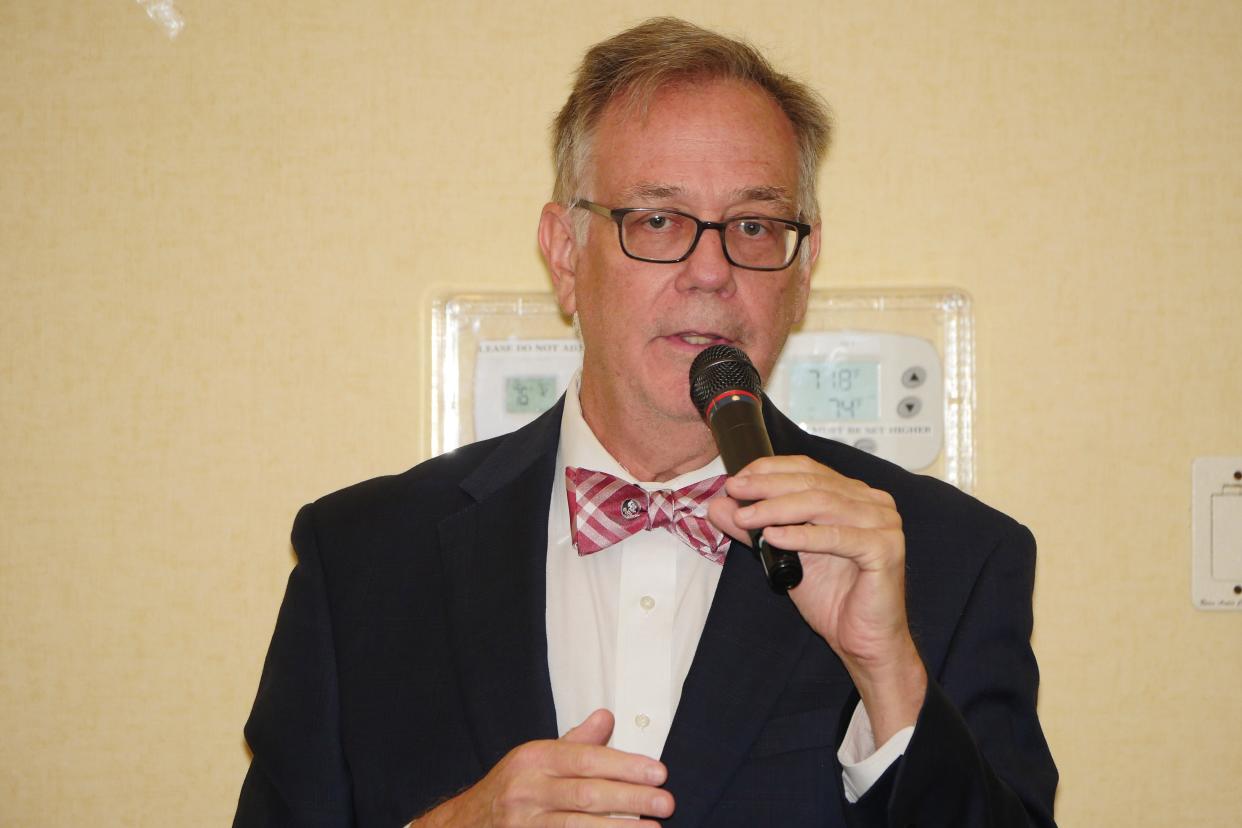FSU economist: National recession all but certain, state more than likely to follow

A Florida State University economist said he believes the United States will enter a recession in the next nine months, while the probability of Florida joining the rest of the country is about 70% – up slightly from his 67% estimation a few months ago.
"The probability of the U.S. going into a recession is 100%,” Jerry Parrish said at a Sept. 21 luncheon meeting of the Sarasota Real Estate Investors Association.
“I do not see how we can manage a soft landing," he said, using the term for a Federal Reserve balancing act in raising interest rates to tame inflation without causing a recession.
Related: FSU Economist details state's COVID-19 recovery
“We were too late raising interest rates,” he continued, then correctly predicted that the Federal Reserve would raise interest rates another 75 basis points – or 0.75% later that afternoon.
Here are three other observations from Parrish – who last spoke in the area at the Venice Area Chamber of Commerce 2022 Economic Outlook breakfast in April.
What’s the significance of nine months?
Recessions are chartered by the National Bureau of Economic Research Business Cycling Data Committee – a group of eight economists.
“About nine months after a recession starts they’ll say hey, nine months ago we went into a recession,” Parrish said. “About six months after it’s over, they’ll come out and say we ended our recession on ‘X ‘date, whatever month it is.
“We’re not in a recession because the NBER dating committee has not said that we are,” he added. “I will bet large sums of money that they will say we’re not in a recession even though we have two quarters of negative GDP at the first of the year.”
“I don’t believe they're going to – the labor market is way too strong.”
Still, several factors point to a recession.
For example in Florida, the Florida Consumer Sentiment Index, compiled by the University of Florida Bureau of Economic and Business Research – which tracks the mood of people toward spending money – went from a high of 102.3 in February 2020 to 76.3 during the COVID-19 pandemic and then sunk down to 60 this summer.
“It’s the inverse of gasoline prices at the pump,” said Parrish, who used the number as an indicator of future spending. As gas prices have declined, the index number has grown to 65.2.
Will it be as bad as the Great Recession?
In short, the answer to that is “no,” with the key difference being oversight of credit.
“If you’re thinking we’re going to have another housing crash like we did in '08-'09 you can forget it,” Parrish said, then listed a couple of reasons. “One, people still want to move to Florida.
“The credit quality difference between now vs. then is phenomenal,” Parrish said. “People’s balance sheets are better, credit quality substantially better.”
“Are people going to lose their house? You bet,” he added. “Are people going to lose their car – they paid premiums for over the last couple years? It’s already happening.”
Lower interest rates won’t return in the near future but, Parris said, there’s opportunity in a recession, too.
“I think it’s a great time to invest,” he added. “I think it’s a great time for people to start a business.”
Florida’s economy is still strong
Parrish noted that Florida’s economy rebounded quicker than the U.S. from COVID-19. Nationwide it took until June for the country to add the same number of jobs as what were lost during the pandemic.
Florida accomplished that in October 2021.
Not all job categories came back at the same time. Educational and health services and construction job growth did not equal losses until this June, and leisure and hospitality still are not back.
State tax revenue derived from travel is still down as well, because there are fewer international visitors.
Before COVD-19, Florida had almost 14 million annual visitors from other countries. Those visitors pump money into the state economy through sales taxes and user fees.
Those visitors do not put children in schools or interact with law enforcement, two activities that cost the state money, Parrish said.
Currently, the state is on pace for 7 million visitors from other countries.
“Those people stay longer and spend more,” Parrish said.
Florida’s economy – valued at more than $1 trillion – is the fourth largest of any state in the U.S. and when considered on its own it's the 16th or 17th largest economy in the world.
When considering Gross Domestic Product, or GDP per capita, Florida is larger than Germany ,“and that’s before COVID and the gas crisis, Parrish said.
Parrish credited pro-business decisions from the state Legislature dating back to the terms of then-Gov. Rick Scott as strengthening the economy.
“They took Florida from a place of, ‘Hey Florida’s cheap and I want to retire there,’ to ‘Hey there’s business going on in Florida and we’re going to recruit businesses,’” Parrish said. “And we did a great job with that.”
Earle Kimel primarily covers south Sarasota County for the Herald-Tribune and can be reached at earle.kimel@heraldtribune.com. Support local journalism with a digital subscription to the Herald-Tribune.
This article originally appeared on Sarasota Herald-Tribune: FSU economist Jerry Parrish said the U.S. is headed for recession

